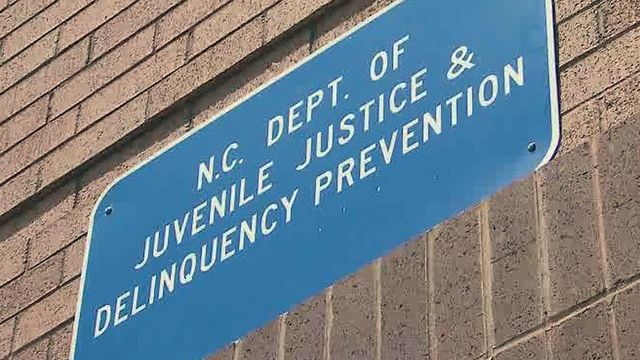Cuts to NC juvenile justice budget pose 'public safety issues'
The North Carolina Department of Juvenile Justice and Delinquency Prevention says the state House's proposed $19.3 billion budget bill could put some serious young criminal offenders back on the streets.
Posted — UpdatedUnder the 2012 fiscal year figures, the department is facing $15.5 million in spending cuts, a 10 percent decrease from its current $151 million budget, and an elimination of about 275 positions, a 15 percent work force reduction.
Among the cuts is an expected decrease of 75 the number of beds at the state’s seven Youth Development Centers, which serve as long-term facilities for young people under age 16 who are convicted of serious crimes.
At a minimum, offenders are ordered to serve six months at a center, but the amount of time they actually stay is based on the specific needs of the individual. The centers provide mentoring, education, and individualized treatment plans so that offenders can have a new start in life upon their release.
As of March, there were 393 young offenders in the development centers, according to the juvenile justice department.
The North Carolina Sentencing and Policy Advisory Commission released a report in February, recommending 404 beds for the 2012 fiscal year.
Gov. Bev Perdue's spending priorities cut that number to 387, while Republican House lawmakers cut it to 329.
Department Deputy Secretary Kathy Dudley says that the department has determined that an additional $2.6 million would mitigate any damage caused by the cuts. That would give the department the ability to accommodate Perdue’s budget numbers. Any deeper cuts, she says, would be alarming.
"We're very concerned. The youth who are in our custody are committed by the court for serious and violent offenses,” Dudley said. “All of these young people will eventually transition back to the community."
Cutting beds would mean that the average stay of about a year would be shortened to accommodate more young offenders.
"This is definitely a public safety issue. The young people that we need to serve in these facilities are young people that have posed threats to the community,” she said. “We want to be sure that transition happens at a time when they're ready to be out in society and not a threat to all concerned.”
Some former offenders, like Micheal Cox, who served in development centers, say they are also concerned by the cuts.
"I don't think I would be where I'm at today, if I were let out early,” Cox said. “Those programs help save lives. If it wasn't for those youth development centers, I could have been killed, I could have gotten involved in more serious crimes. I think if had been released earlier, I could have had more extensive trouble.”
Now 27, Cox says that trouble came easy to him as a child. At age 12, he was convicted of larceny for stealing cars, and he spent eight months in a development facility. He was back again, at age 15, for selling drugs in school.
"At one point in my life, I really thought that I was going to be in and out of the system for the rest of my life,” he said.
Cox says the programs that the youth development centers offer work.
Based on what he learned there, he went on to graduate high school and attend college at North Carolina Central University, and he recently received his graduate degree in social work from North Carolina State University.
“At one point, I really didn't think I'd be graduating from school or even have a chance to go to school,” Cox said. “I really looked at my life as a young man going through the juvenile justice system, going through those programs and realizing those programs helped me get a long way.”
Now, he’s hoping to be able to help young people facing similar experiences and situations as he did.
"I don't have a preference as long as I'm helping kids,” Cox said. “I want to give back now. I was in the system on the wrong side. Now, I have an opportunity to do more for kids on a larger scale … I just want to give back."
Success stories like Cox’s are the pay-off to money invested in juvenile justice, Dudley says.
“The big picture (is) we're working to save the state a large amount of money to keep these young people out of the adult prison system for life,” she said. “If we're not turning their direction at this age, they will remain in the criminal justice system, and as taxpayers, we will be supporting them.”
• Credits
Copyright 2024 by Capitol Broadcasting Company. All rights reserved. This material may not be published, broadcast, rewritten or redistributed.





